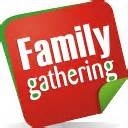Cont. Family Gathering Tips


In yesterday’s post, I discussed supplies (a “survival kit”) that families could take when bringing their ASD child to a big family event such as a family reunion. Today I want to discuss other kinds of plans that can be helpful.
Visual Schedule
I made brief mention of bringing a visual schedule. Make sure to map out some kind of expectation for the day on a schedule in either words or pictures. It might go something like this:
– Pack up the car
– Leave for Grandpa’s
– Arrive at Grandpa’s
– Greet family members
– Free play time for about one hour (play legos or gameboy)
– Lunch time
– Family softball game
– We will leave around 3 PM to drive home
– You could combine a schedule with some aspects of a social story to create more structure for the day, in which you are anticipating trouble spots
Going to the Family Barbecue:
– First pack some toys to bring
– Leave our house around 4 PM. This could change if someone isn’t ready on time. If we are late, I can read my book until everyone is ready to go.
– Then get into the car, and drive to Grandpa’s house. This will take about 45 minutes. Sometimes it takes longer if there is a traffic problem.
– Arrive at Grandpa’s, it will be kind for me to say hi to each person. My relatives will like it when I say hi to them and smile.
– Stay with my family for the first ten minutes.
– After that, I am free to go and swing until dinner is ready.
– During dinner, sit with my family. If there is something I don’t like to eat, I do not have to eat it. I will not say anything about the foods I don’t like, because that might hurt someone’s feelings. Later, on the way home, I can tell my mom or dad about the foods I didn’t like.
– After dinner, I am free to go and read my book under the big oak tree until it is time to leave.
– My special job during the barbecue will be: serving the potato salad.
– We don’t know exactly what time we will leave. My parents will tell me about 15 minutes before we are leaving, so I will know what to expect.
Reward Plan
Don’t forget to set up a reward plan for the event. Set 2-4 behavior goals and associated rewards. Sample goals are: 1). Being respectful (no name calling, or bad words) 2). Following instructions from mom, dad, and grandpa and 3). Playing nicely with cousins (no physical aggression).
NOTE: Don’t make it too hard to earn rewards. If your child is highly unlikely to go through the entire event without having several problems, then break the time into intervals (such as every 1/2 hour) so they can earn some rewards even if there are some problems.
A Special Job or Activity
One way to help an ASD child at a big family event is to try to structure their interactions. Instead of expecting the ASD child to just go off and play, or to hang around and visit all the relatives, give your child a special meaningful job such as serving the potato salad at a serving line which would provide for some interaction opportunities. Then you make the relative happy because they each get a chance to see your child and say hi. With a job to do, your child knows exactly what to do – that is to serve a spoonful of potato salad – and doesn’t have to struggle with things he/she doesn’t know how to handle so well, so as the back and forth of a conversation that asks such questions as “How’s your summer going?” Perhaps your ASD child could set up a chess or checkers board and challenge their cousins to a match (but make sure to only do this one if you child can handle losing fairly well – unless they are so good you know they are very unlikely to lose!). Or the the child could have a jigsaw puzzle set up that he/she is working on that others can come over and admire (if you don’t want others to help your child due to this causing upset, put up a little sign giving people guidance about helping or not).
Games
I tend to discourage play fighting of different forms for ASD children or teens, such as big water fights, wrestling matches, or toy sword fights. ASD children frequently struggle with knowing when they or when others are going too far, and these often end up in real fights or in meltdowns. If the rest of the family insists in having the big water fight, take your child off to do another fun activity during that time. Do it in a way so that your child doesn’t feel punished, because it is not your child’s fault that this type of activity is difficult.
If game playing is going to be involved, try to have at least one game which might be a successful experience for your child. I think ASD kids will do well with those reunion games such as: find a person with red shoes, find a person with cowboy boots, find a person with a grey sweatshirt. Or perhaps they could excel at a Star Wars Trivia Game. I don’t believe in requiring your child to play games they don’t like or can’t do well. If your child hates softball, but that is part of family reunion every year, you could try the special job plan again (such as keeping score) or alternatively I think it’s fine if the child goes to swing or play legos on a blanket. You just might need to educate the relatives that this is an acceptable choice.
Informing Relatives about the Diagnosis
And speaking of the relatives – do they know your child has an ASD? Would it help if they did, or if a few key players did? Can you give some of the relatives tips of how to interact? Remember the suggestion from the last post to bring a book describing ASD that is easy and quick to read (designed for children) that interested relatives could read a bit from right on the spot? I remember one young autistic boy who always wanted to chose one of each type of juice box that was put out, so he could line them up by color, but this would give his grandfather a fit who felt it wasn’t fair to the other children. In this case, educate grandpa and bring extra juice boxes if you need to so that your child can have one of each and line them up. Maybe that is what your child likes about going to the reunion rather than the softball game! Trying to convince the child with autism that it is wrong to take one of each sounds like the perfect setup for a meltdown.
What will you do if things aren’t going well?
Before going to the reunion or event, make a plan with your family of what you will do if your child begins to get overwhelmed. What do you want your child to do? Should they come to you? Is it OK to leave early? Is there a quiet spot where your child could go and have a break? Can they listen to an ipod or watch a movie on a portable DVD player if they need a break from people? Set up down times for your child in a preventative manner, to create some relief from the stress of interaction. Don’t expect them to have the same level of tolerance and enjoyment from interaction that a neurotypical child would. Don’t forget to bring your kit of supplies that you packed after reading yesterday’s post!
What have some of your experiences been at large family events or reunions? Any tips for making them work out?
